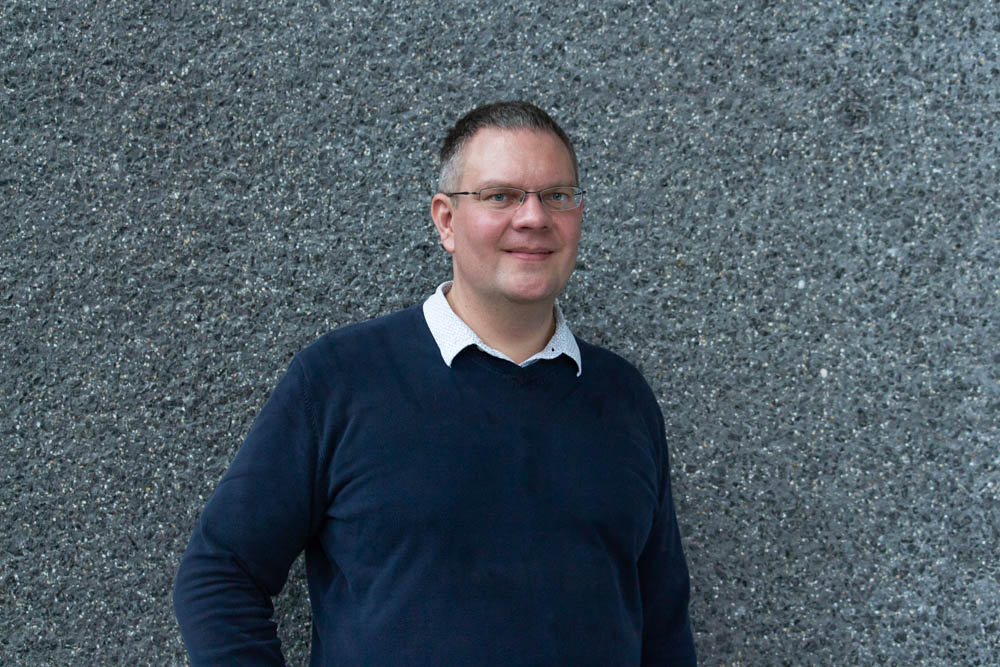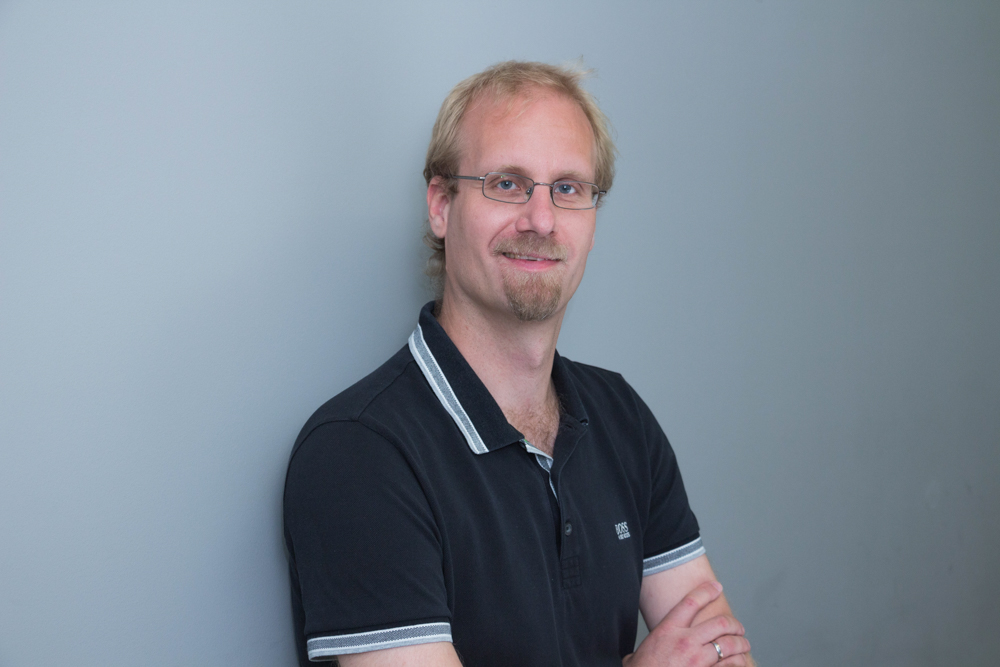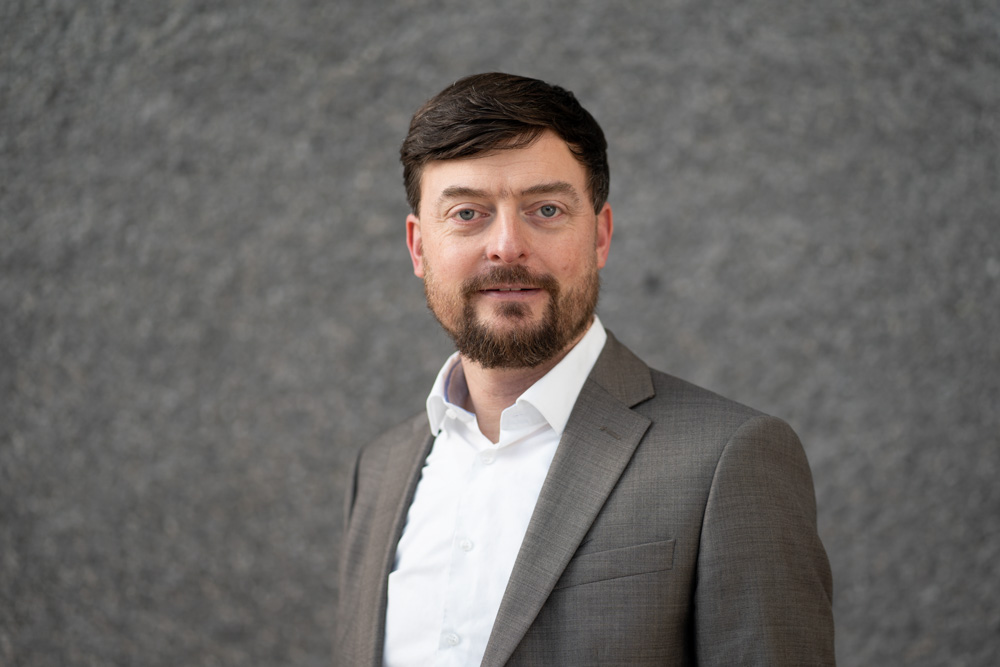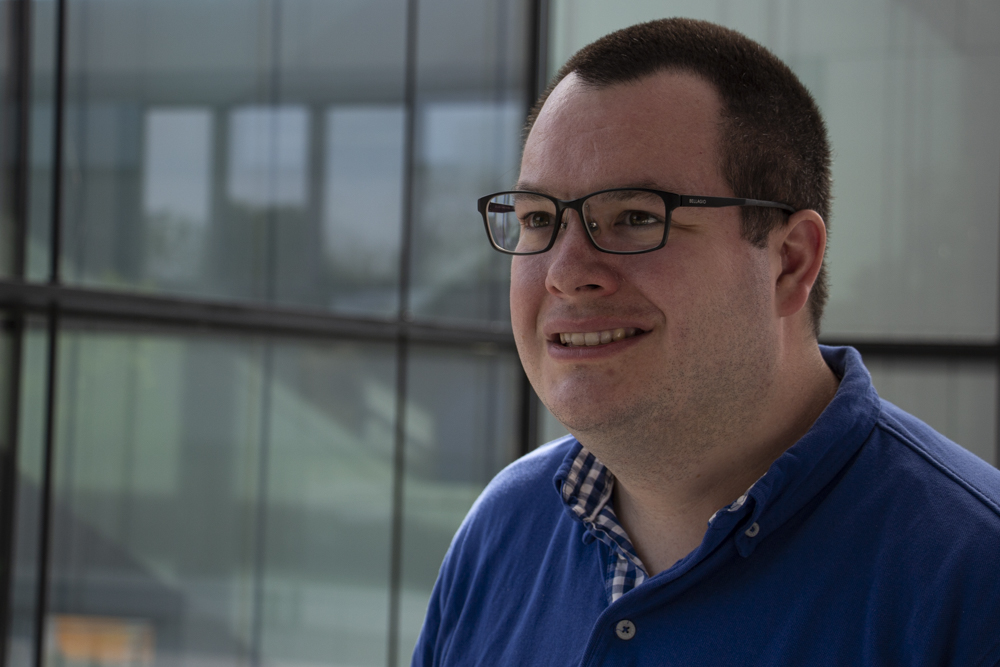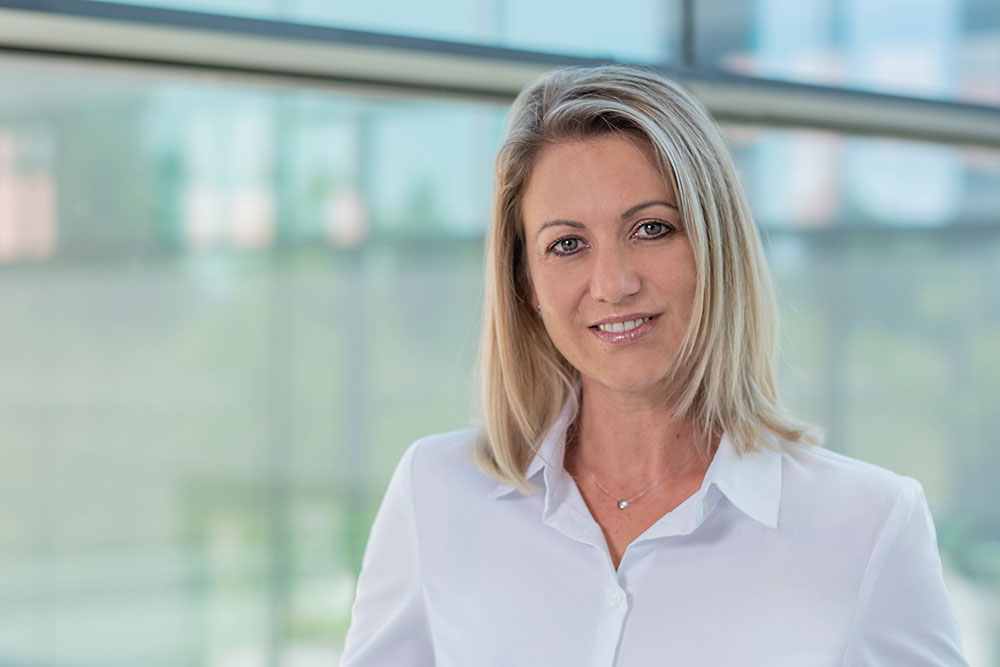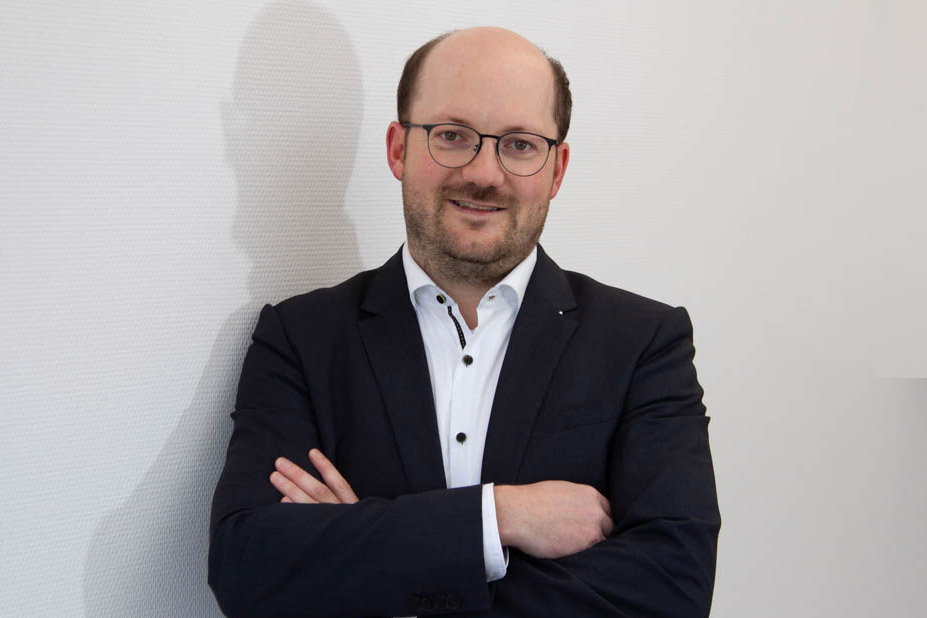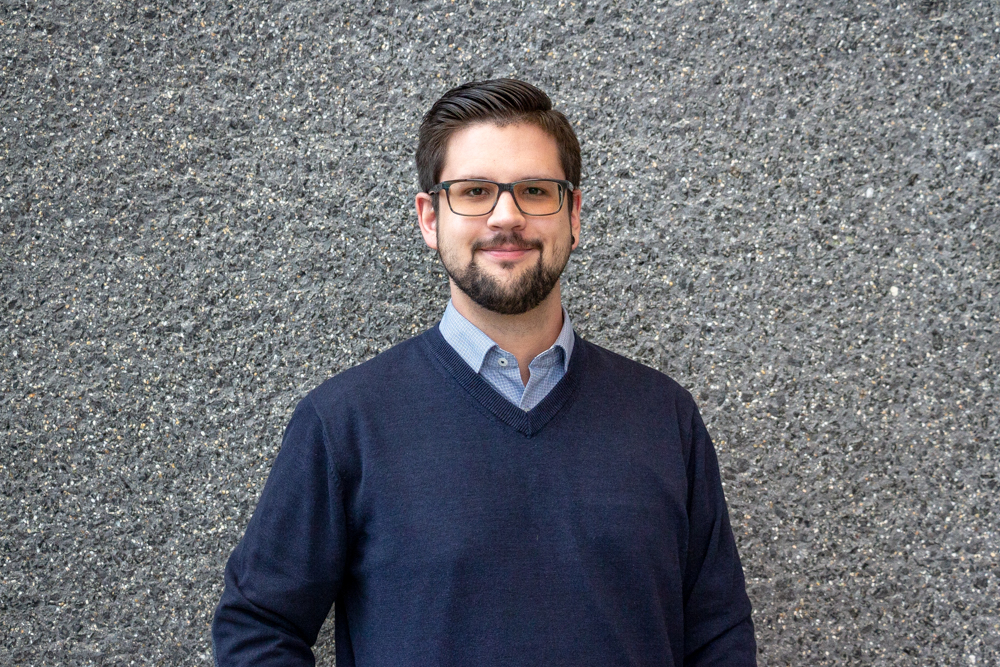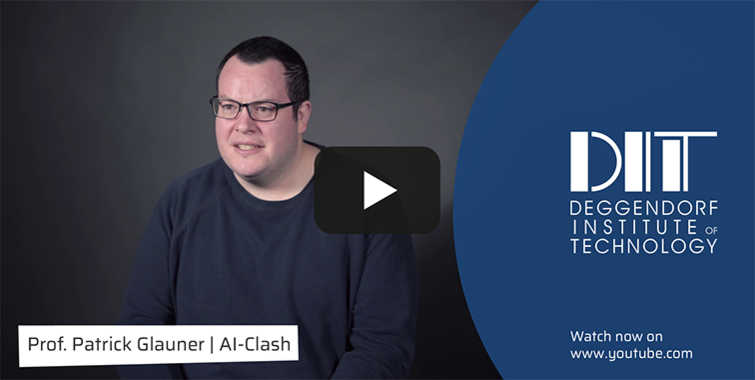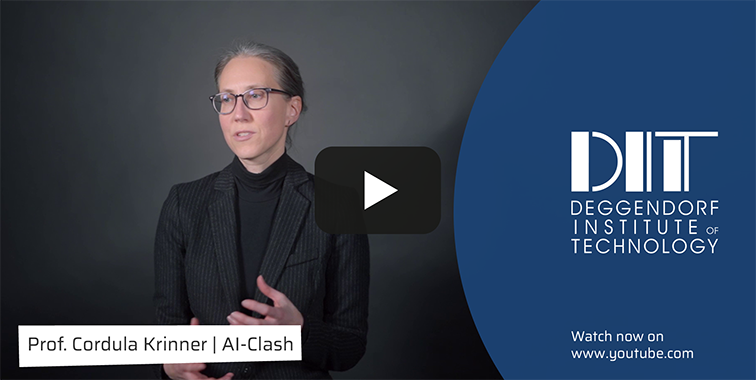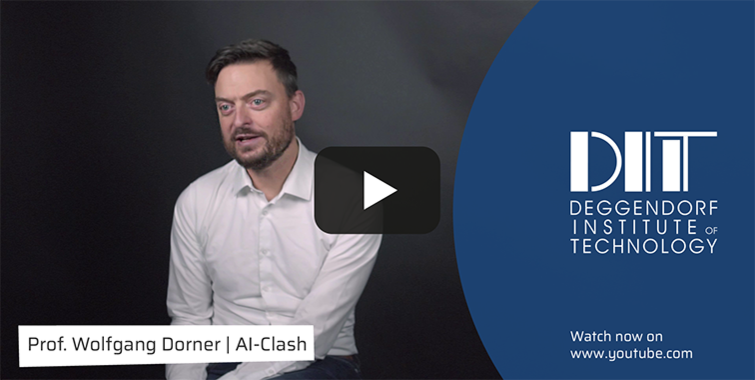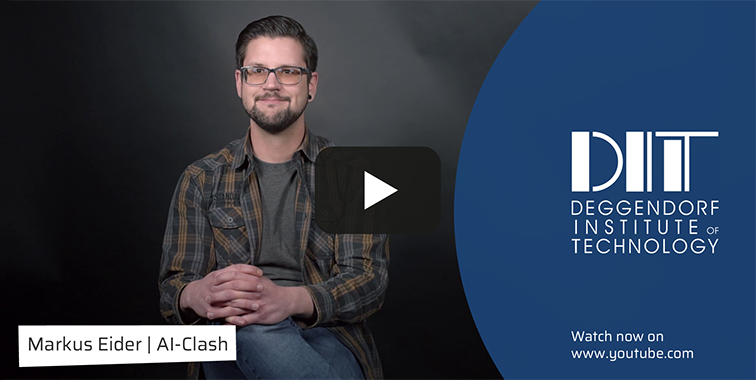research at dit
pioneering & vibrant
Do we want an autonomous car to drive us around? Do we want to accept machines guessing our (mental) health problems from a picture we upload to a social media platform?
AI is currently one of the most discussed and most controversial technological trends. Advances in the field of machine learning are supposed to increasingly enable the automation of activities previously reserved for humans. A lot of benefits are promised, for instance in the field energy utilization, public transport systems and traffic or in the field of healthcare. Questions such as: Where will the next breakthroughs in or with AI occur? Which domains have not yet been addressed by AI? can be discussed in this issue. However, we might also ask whether it is desirable to automate each and every task or process within human-technology systems. How can we make optimal use of the respective abilities of human beings and technical system components?
We would like to challenge approaches to AI and encourage you to develop unconventional ways of thinking about AI as well as about interdisciplinary ways of exploring AI fields for health issues, for autonomous driving as well as for industry 4.0 and automation.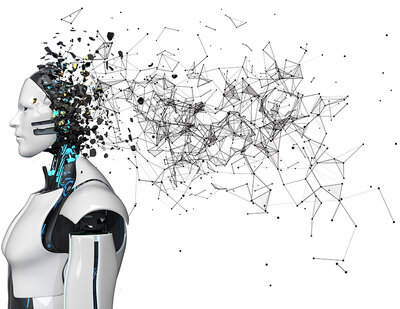
What we have done
In three subject-focused virtual workshop sessions researchers from Deggendorf together with scientists from Spain, Italy, Finland, Romania and Ethiopia developed ideas for three different fields of applied research using the method of design thinking. Design thinking paves the way for structured ‒ and simultaneously unconventional ‒ exchange. Design thinking takes into account the perspective of the target group. In the AI Clash design thinking workshops that were carried out between October 2021 and January 2022, new ideas for research and development have been generated by interdisciplinary and international groups of researchers in the following three fields of applications:
the researchers from dit
prof. dr. marcus barkowsky:
"My research is focused on the Quality of Experience of visual stimuli and extents to the evaluation of User Experience of IoT and Industry 4.0 applications. I combine the theoretical and applied aspects of Artificial Intelligence to the prediction of human's opinion. In the AI Clash, I am looking forward to dive into new research fields such as the question how the long-standing and valued experience of workers in industry can be assisted by artificial intelligence using interactive systems in the digitalization process of Industry 4.0."
prof. dr. andreas fischer:
"The field of Artificial Intelligence has come a long way. In many application areas stunning results are achieved by modern AI technology. But too often, these results feel more like magic than like technology. We need a better understanding of the chances, but also of the pitfalls of applying AI methodology, in order to apply it with consistent success. This can, however, be achieved only by also understanding the many application domains. A broad, multidisciplinary view on AI can help us to advance and apply the relevant technological concepts. I am firmly convinced, only then can we bring together both human and artificial intelligence, spark exciting and inspiring innovations, and let the society profit as a whole."
prof. dr. wolfgang dorner:
"In geo-science where I am coming from, we are always dealing with a lot of data. And what is annoying to me is to run through a bunch of data to find the most important point and more espescially to have the risk to not find the essential data that is maybe somewhere hidden behind the scene. That is excatly the fascinating thing about AI, that it can make data visible that we may have ignored and that it can work on data in huge amounts, that a regular human or even groups of humans would not be able to handle."
contact:
prof. dr. patrik glauner:
"AI has been around since the Fifties - so AI is nothing new, but in the last few years there has been quite some progress through reinforcement learning and deep neuronal networks. And they are not only used in academia now, they are being deployed at a very large scale and there are now plenty of applications that we deal with every day. I often talk to elderly people and they feel that AI doesn't affect them at all. But when I tell them that they are dealing with AI, even when they don't have a smart phone - when they go to their doctor, their doctor will use an AI application, so AI impacts them too and helps them to have a longer and healthier and happier life.
If we show people concrete applications how AI is changing their life right now, I think that's how we get the excited about it."
prof. dr. melanie kappelmann-fenzl:
"The Next Generation Sequencing (NGS) technology produces large amounts of data. Analysing and understanding the human genome, epigenome and the associated transcriptome is a growing challenge. It is therefore important to generate a functioning and resilient interface between natural and computer scientists. The amount of data that is generated during the decoding of human, animal or plant genetic material, for example, must be processed and correlated in order to make it usable. Biomedical research currently uses a wide variety of computer-based analyses tools to identify and analyse genes that are predictive for the prognosis or response to therapy of a disease. The analysis and evaluation of these data sets requires knowledge in biomedicine combined with application-oriented computer science. Precisely these core skills are necessary to allow high quality and meaningful data analysis performance- transparent and comprehensible."
prof. dr.-ing. thomas spittler:
"Mankind has a great need to be healthy and active until old age. This desire for old age, however, brings with it increased illnesses for which we need an answer. The old, "western" principle of seeking medical treatment when I feel ill must be expanded and rethought. Prevention, diagnosis and treatment must be brought into harmony. This requires digital transformation in healthcare. AI plays a prominent role in this, and we want to use concrete use cases to explain its significance to people, some of whom are unsettled. Humanity is mature! From Care To Prevention!"
contact:
prof. dr. cordula krinner:
"As a person whith major background in psychology but also some background in computer science I would really be happy to have a diverse community of scientists participating at this AI Clash, to to create a interdisciplinary discussion workshop."
markus eider:
"Most of the time people only see neuronal networks and maschine learning but that is not all of artificial intelligence. There is desicion theory and a lot of other topics which are as important. I think the biggest breakththrough in artificial intelligence would be to combine all sub-topics there are right now."
contact:
With the concept of the AI Clash, DIT was among the winners of the ideas competition Research in Germany, which was launched by the German Federal Ministry of Science and Education together with the German Academic Exchange Service. We are very proud to be the first university of applied sciences among the winning research institutions participating in the campaign Research in Germany.
DIT is a shining example that in Germany, innovative research and development together with partners from industry can be quite successful outside of urban centers, and very well serves the structural regional development.
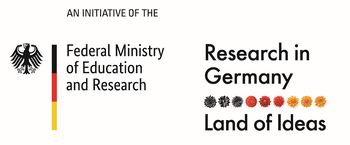
full interviews
"AI is already outsmarting us today in some niche applications."
Prof. Patrick Glauner
"One idea that fascinates, is to create something in our own image."
Prof. Cordula Krinner
"Currently AI has big problems with regard to creative processes - to be empathetic."
Prof. Wolfgang Dorner
"I think the biggest breakththrough in artificial intelligence would be to combine all sub-topics there are right now."
Markus Eider
Information
Deggendorf Institute of Technology organizes a virtual conference on applied artificial intelligence "Clashing Approaches to artificial intelligence - Finding new ideas".
We invite you to pitch your start up idea applying methods of artificial intelligence in the fields
- Industry 4.0/Automation
- Mobility or autonomous driving
- Health care technologies
Make use of the opportunity to present your start up idea to researchers and students from Bavaria and other European countries.
Please submit a short outline of no more than 200 words with your founding idea to ai-clash@th-deg.de no later than April 20th, 2022.
You will be informed until April 30th, if you are chosen to present your project idea in the AI Clash Conference.
Further information about the conference and the preliminary programme can be found here.
Why should I present my start-up idea?
Your startup idea meets an audience of researchers and students in the application fields as well as startup experts that provide you feedback and suggestions to develop your idea further. You can network with researchers and students that might support you or collaborate with you.
We kindly invite you to participate in a virtual conference and to contribute to an academic open access journal issue.
For May 13th, 2022 we are organizing the virtual conference “AI Clash – Clashing Approaches to Artificial Intelligence, Finding New Ideas”. The contributions presented in the conference can be submitted to the first issue of the open access journal “Journal of Applied Interdisciplinary Research (JAIR)” under the topic of the AI Clash.
For the conference we kindly ask you to submit an abstract of no longer than 300 words.
Your abstract should pertain to one of the following three fields of application (sessions):
- Health Technologies
- Mobility/Autonomous Driving
- Industry 4.0/ Automation
Among all submissions three contributions per session will be selected for presentations in the conference. We invite discussants to comment on your presentation during the conference. Please send your abstract to ai-clash@th-deg.de.
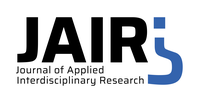
For the journal issue on the AI Clash we would ask you to submit a full text paper. We accept research papers, positon papers and literature reviews/state-of-the-art discussions. The submission will be handled via the journal’s website which is currently under construction and will be launched asap. Information on how to submit your paper and the author guidelines can then be found on the journal website jair-dit.com.
Deadline for submission of conference abstracts (max 300 words): 31 March 2022
Information about acceptance: 5 April 2022
Date of the conference: 13 May 2022 (Registration Link)
Deadline for submission of full text articles to JAIR: 15 July 2022
Information about acceptance for review: 28 July 2022
The decision about acceptance for publication and the reviews will be forwarded to you until October 2022
Planned publication date of the journal issue: January 2023
Virtual Conference
AI Clash - Clashing Approaches to Artificial Intelligence – Finding New Ideas
13 May 2022
09:00 am - 09:20 am (CET)
Introductory plenary session and Welcome
09:20 am - 09:50 am
Keynote: From Reality to Augmented Virtuality
Stephan Windischmann (DIT), Professor for Immersive Media
The multidimensional approach creating an Extended Reality Lab (xR LAB) for Virtual Production (VP), Virtual Reality (VR) and extended Human-Machine-Interaktion (HMI) in Computer Science, Media Engineering and teaching.
10-Minutes-Break
10:00 am -11:00 am
Session on Artificial Intelligence and Health Technologies:
AI-driven Transformation in Scientific Research for Cancer and Care
Melanie Kappelmann-Fenzel (DIT), Mihai Negrea (Institutul Inimii ”Niculae Stăncioiu” Cluj, Romania), Jesús Alcober (Universitat Politècnica de Catalunya · Barcelona, Spain), Philip Plugmann (SRH Hochschule für Gesundheit), Thomas Spittler (DIT/ECRI)
Automation of Parasite Viability Evaluation Using Machine Learning
Samir Irshaid (DIT/ECRI)/ TUM)
11:10 am - 11:30 pm
European Research Programmes on AI/ Research Funding DFG – International Cooperation
Lunch Break
12:30 pm - 1:30 pm
Session on Artificial Intelligence and Mobility:
Travel Mate Matching — Strengthening Shared Mobility through the Formation of Interest Groups
Markus Eider, Cordula Krinner, Peter Faber (DIT), Florian Haselbeck (TUM Campus Straubing)
Driving license test for automated vehicles
Michael Schötz (DIT)
10-Minute-Break
1:40 pm - 2:40 pm
Session on Artificial Intelligence and Industry 4.0:
Analysis of Bias Remediation in AI Model and Concept Proposal of New Methods to Improve the Equality of search engines
Zineddine Bettouche, Bernhard Haderer, Andreas Fischer (DIT)
Towards Learning Dextrous In-Hand Manipulation for Robotic Applications
Leon Sievers, Johannes Pitz, Berthold Bäuml (DIT)
Towards Collaborative-AI Assisted User Interfaces in Industry 4.0
Marcus Barkowsky (DIT), Wolfgang Dorner (DIT), Andreas Fischer (DIT), Lohic Fotio Tiotsop (Computer Engineering Department, Politecnico di Torino, Italy), Arto Toppinen (University of Applied Sciences, Kuopio, Finland)
2:40 pm - 3:00 pm
Final discussion and end of the conference
The conference is hosted by Michelle Cummings-Koether (DIT)
